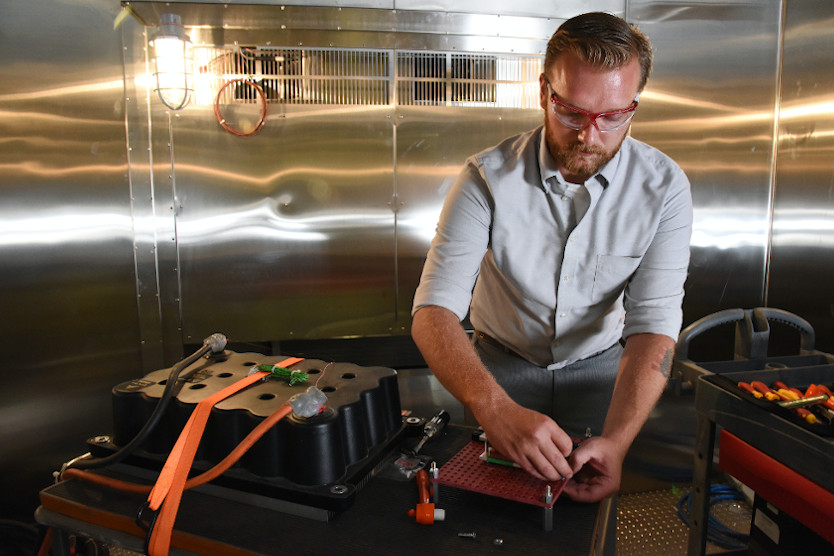
Aluminium-ion (AIB) batteries offer a number of advantages over Li-ion including greater safety and cycle stability, lower production and recycling costs and higher sustainability credentials.
© Unsplash
As the demand for stationary electricity storage grows in Germany, scientists are grappling to find more cost-effective and sustainable alternatives to lithium-ion (Li-ion) batteries. Aluminium-ion (AIB) batteries could be one of those breakthrough technologies. They offer a number of advantages over Li-ion, including greater safety and cycle stability, lower production and recycling costs and higher sustainability credentials – as the raw materials do not include critical minerals like lithium, nickel and cobalt.
The ALBATROS project (“Alternative material systems for stationary battery storage based on aluminium as anode material to substitute critical raw materials") brings together three research institutes – the Fraunhofer Institute for Integrated Systems and Device Technology (IISB), DECHEMA and the Institute of Inorganic Chemistry at the TU Bergakademie Freiberg – with IoLiTec-Ionic Liquids Technologies GmbH to develop prototype AIB battery cells based on inexpensive aluminium-graphite electrodes.
Previous tests have shown that AIBs can achieve a cycle stability of over 20,000 cycles and charging rates of more than 150C and that the components present no fire hazard. But the technology is still not ready for market.
ALBATROS aims to optimise AIB systems by focusing on activity at the interfaces of the electrodes and electrolyte. The highly corrosive behaviour of the electrolytes used in AIB presents a particular challenge. The prototype cells will be tested with different materials and combinations to investigate, amongst other things, the kinetic behaviour of the aluminium ions at the anode and the charging properties of the graphite matrix.
The Federal Ministry of Education and Research (BMBF) is funding the project with the aim of pushing forward alternative, cost-efficient and sustainable solutions for renewable electricity storage.


